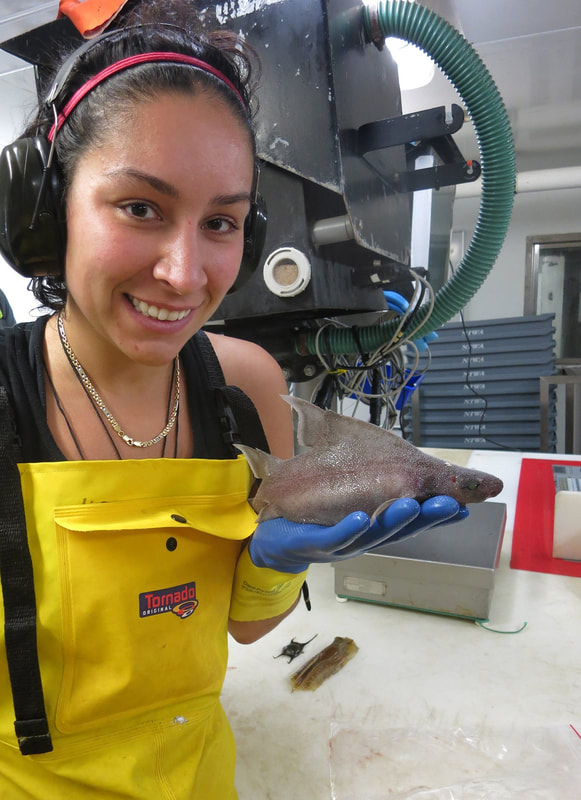Deepwater Chondrichthyans Working Group
Chair
- Dr. Brit Finucci | based in New Zealand (Oceania Region member)
Introduction
Deepwater sharks and their relatives represent nearly half of the global chondrichthyan diversity, but their presence amongst the scientific community is greatly underrepresented. Many species are data poor, their status remains uncertain, and the threats and trade that affect deepwater species unknown. Without sufficient data, localised declines have gone largely unnoticed and management action (where it exists) is often implemented long after a fishery has been depleted or collapsed.
The IUCN SSG Working Group for Deep Sea Chondrichthyans (WG DSC) was initiated to establish a global network of like-minded researchers with a wide range of expertise applicable to the conservation, management, and where needed, recovery of deepwater sharks and their relatives.
The IUCN SSG Working Group for Deep Sea Chondrichthyans (WG DSC) was initiated to establish a global network of like-minded researchers with a wide range of expertise applicable to the conservation, management, and where needed, recovery of deepwater sharks and their relatives.
The tasks of this Working Group will be to
- Publicly heighten the plight of threatened deep-sea sharks and their relatives, with a focus on gulper sharks (family Centrophoridae);
- Map supply chains for deep-sea chondrichthyan trade, with focus on liver oil and fins, so market data can be used to supplement or verify catch assessments. We know very little about the national and international liver oil trade. We need these data to better quantify the impacts of the liver oil trade and identify alternatives to reduce pressure on deepwater chondrichthyans;
- Establish best handling practices and post-release survival rates for deepwater chondrichthyans;
- Reach out to, and establish collaborations with, ongoing and upcoming global deepwater initiatives (e.g. Global Seamounts Project). These projects may have access to locations where little is known about the deepwater chondrichthyan diversity and may collect data that could give further insight into deep-sea chondrichthyan ecology (e.g habitat use);
- Support and grow the next generation of deepwater chondrichthyan researchers. Research on deepwater chondrichthyans is under-represented in scientific forums and often restricted due to high costs and accessibility of samples. The WG should encourage research on the ~500 taxa represented here (including public engagement) and explore alternatives means of creating opportunities for students; and
- Evaluate and establish a baseline understanding of non-fishing anthropogenic threats to deepwater chondrichthyans, such as climate change and deep sea mining.
|
‘I’m thrilled to start my second term with the SSG as Chair of the Deepwater Chondrichthyan Working Group. I look forward to leading a global network of SSG members with an interest in the deep sea to establish a greater profile for some of our highly threatened deep dwelling species and encourage more research on our data poor ones (chimaeras included!)’
Dr. Brit Finucci |
Explore the other IUCN SSC Shark Specialist Group Working Groups:

